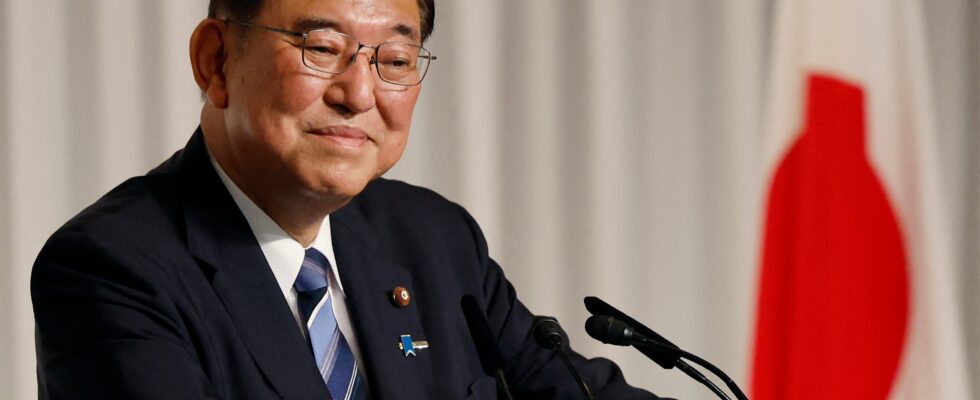Shigeru Ishiba’s perseverance finally paid off this Friday, September 27, allowing this discreet but influential figure in Japanese politics to take the helm of the Liberal Democratic Party (PLD) to succeed Prime Minister Fumio Kishida.
Aged 67, Ishiba, known for his mastery of security and defense policy, was running for the fifth time in this race for the head of the ruling party. He beat Sanae Takaichi, who aspired to be the first woman to occupy this position, in the final of this election, which Fumio Kishida decided to renounce, de facto abandoning his position as head of government.
Favorable to an Asian NATO
At the international level, Shigeru Ishiba calls for the creation of an Asian version of NATO, which could irritate China, but he nevertheless remains cautious in his comments on Beijing. Ishiba, who will lead the world’s fourth-largest economy, simply argues that the Japanese military should be able to respond more forcefully if its airspace or territorial waters are violated. Currently, a warning shot is the only option, and China is “well aware of this”, he said. He calls for the US-Japan security alliance to be more egalitarian. On the domestic front, the man who was long considered the eternal N.2 says he wants to tackle difficult social problems such as political and agricultural reforms and questions of national security.
In 2012, this father of two children failed to take the lead of the party against his great rival, Shinzo Abe. Same scenario during his previous attempt to gain power in 2020, facing Fumio Kishida, the current Prime Minister, whom he will replace on Tuesday. The former Minister of Defense and Agriculture is rather appreciated by the Japanese public but has always suffered from a lack of popularity among parliamentarians.
Elected deputy at 29
For a long time, Shigeru Ishiba had alienated the party’s heavyweights, for example by “openly criticizing the policies of the PLD under the leadership of Shinzo Abe”, Yu Uchiyama, professor of politics at the University, told AFP. from Tokyo. But recently, “he spoke about the need for the ruling party to turn the page on the political-financial scandals” which shook the PLD, he adds, which could have worked in his favor.
This time, the stars have indeed aligned for this enthusiast of trains and pop singers of the 1970s who won his first parliamentary seat in 1986 at the age of 29. “My life’s work is security, disaster prevention and the revitalization of rural regions,” he declared during the campaign for head of the PLD. He thus suggested the creation of a government agency responsible for preventing natural disasters in this country prone to earthquakes and frequently hit by typhoons and torrential rains.
Originally from the rural region of Tottori – the least populated department in Japan – he places an important emphasis on the revitalization of the Japanese countryside. He wants to raise Japan’s low birth rate by taking measures such as reducing Japan’s long working hours and strengthening support for parents. “Japan’s population will decline sharply. If we do not take radical measures, the economy will not develop. I do not want future generations to experience our failures and setbacks again,” he said. -he declared during a televised debate.
Objective: economic recovery
Shigeru Ishiba will have to revive the Japanese economy. After suffering almost non-existent inflation or even deflation for decades, Japan experienced a turning point in 2022, with an increase in consumer prices systematically greater than or equal to 2%. The future leader has pledged to boost the economy by encouraging domestic investment in the chip and artificial intelligence technology sectors, as well as using nuclear energy alongside renewable energy to power the country.
Ishiba explained Wednesday that he was uniquely qualified for the prime minister’s post because he has experienced many failures when tackling difficult social issues, such as agricultural reform. “I have always thought a lot about why things have not always gone well. And I do not want future generations to repeat the same mistakes,” he declared on Wednesday two days before his election.
